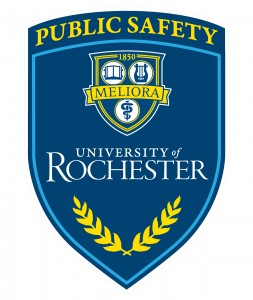In October, UR will hold a formal introduction of its newly revamped security force, which includes a mix of sworn peace officers and regular officers.
Security, under its new name of Public Safety, mandated that its officers undergo an additional 380 hours of training since their induction as peace officers in March.
Non-sworn Public Safety officers are required to undergo up to 500 hours of training prior to becoming a fully recognized member of the University’s security force. Both trainings spanned five months and offered officers enhanced abilities and tools to deal with campus safety.
The peace officers will be equipped with strictly defensive tools such as pepper gel and batons, but they will not be authorized to carry firearms.
However, they are licensed to handle firearms and have the power to take safe custody of firearms should the need arise.
Additionally, the peace officers will also be able to make mental hygeine arrests.
“Right now, the powers that the Public Safety officers have are the powers that any citizen has,” senior vice director of administration and finance Ron Paprocki said. “It’s a citizen’s arrest.”
Legally, the Public Safety non-sworn officers are on par with a regular citizen.
Previously, in a situation where an individual is being disruptive and creating a tense situation, Public Safety officers would have to wait with the individual for the Rochester Police Department to respond, which, since the situation isn’t necessarily life threatening, could mean up to 30 minutes.
With the peace officers, Paprocki says that they would be authorized to deal with situation themselves, offering an immediate response.
In 2010, university President Joel Seligman connected a security commission to evaluate UR security forces and their effectiveness in maintaining safety as well as what actions could be taken to improve the situation. Ron Paprocki, who chaired the commission, says that the process took many months of research.
“In 2010, we were receiving strong signals from the officers that they were concerned that they didn’t have sufficient tools to deal with the changing environment [of public safety],” Paprocki said. “We recommended a mixed force, and that was accepted by the president. We wanted to move the security department up to the next level for ensuring a safe campus environment.”
Smith is a member of the class of 2014.


